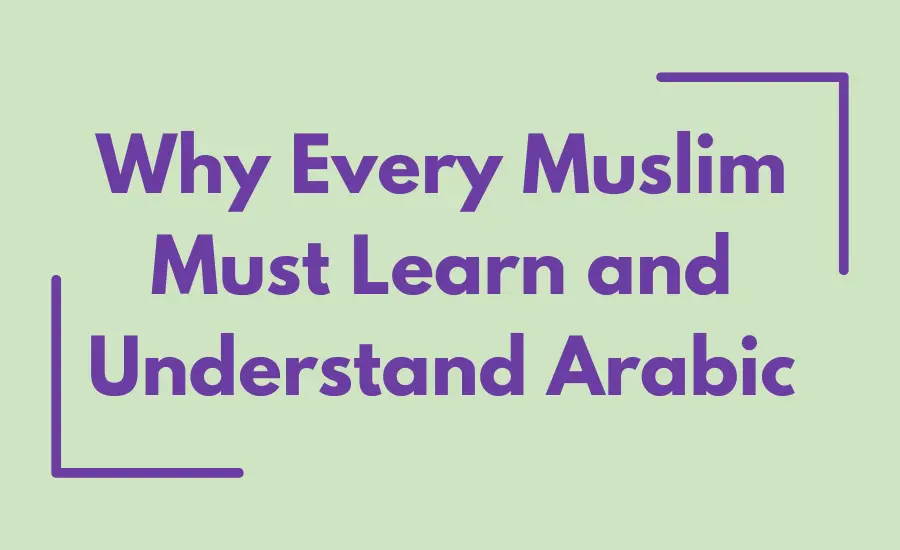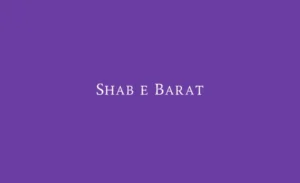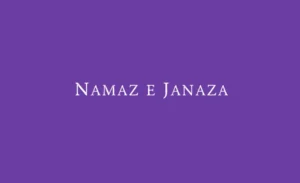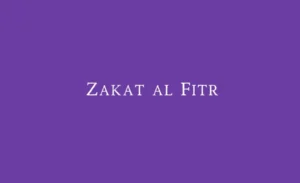Arabic is not just another language; it is the sacred language of Islam i.e. the language chosen by Allah (SWT) for His final revelation, the Holy Quran. Every Muslim, regardless of nationality or background, has a deep connection with Arabic because it is the medium through which we understand the Word of Allah, the Sunnah of the Prophet Muhammad (peace be upon him), and the core of Islamic teachings.
Learning Arabic opens the door to understanding Islam directly from its pure sources i.e. the Quran and Hadith, without relying solely on translations that may lose depth or accuracy.
In this blog, we will explore the importance of learning Arabic in Islam, supported by Quranic verses, Hadiths, and insights from Islamic scholars. We will also discuss how mastering Arabic enhances spiritual growth, strengthens the Muslim Ummah, and revives our connection with Allah.
1. Arabic: The Chosen Language of Revelation
Allah (SWT) chose Arabic as the divine language of the Quran. This selection was not random; Arabic is one of the richest and most expressive languages in the world, capable of conveying deep meanings with precision.
Arabic Verse:
إِنَّا أَنزَلْنَاهُ قُرْآنًا عَرَبِيًّا لَعَلَّكُمْ تَعْقِلُونَ
Transliteration: Inna anzalnahu Qur’anan Arabiyyan la’allakum ta’qiloon
Translation: “Indeed, We have sent it down as an Arabic Quran so that you may understand.” – (Surah Yusuf 12:2)
This verse shows that understanding the Quran deeply requires understanding Arabic. Allah revealed His words in Arabic so that people could grasp their meaning, wisdom, and guidance directly.
2. The Language of the Prophet Muhammad (PBUH)
Prophet Muhammad (peace be upon him) delivered his message, prayers, and teachings in Arabic. His sayings (Hadith) and actions (Sunnah) were all communicated in this divine language.
Arabic:
أَحِبُّوا العَرَبَ لِثَلاثٍ: لأَنِّي عَرَبِيٌّ، وَالقُرْآنُ عَرَبِيٌّ، وَكَلَامُ أَهْلِ الجَنَّةِ عَرَبِيٌّ
Transliteration: Ahibbu al-Araba lithalathin: li’anni Arabiyyun, wal-Qur’anu Arabiyyun, wa kalamu ahlil jannati Arabiyyun
Translation: “Love the Arabs for three reasons: because I am Arab, the Quran is Arabic, and the language of the people of Paradise is Arabic.” – (Narrated by al-Tabarani)
This hadith reflects the spiritual and eternal significance of Arabic, that it is the language not only of this world but also of Jannah (Paradise).
3. Understanding Arabic Deepens Your Connection with the Quran
Many Muslims recite the Quran daily, but not all understand what they are reciting. While recitation earns reward, true reflection (tadabbur) comes only through understanding the meaning.
Arabic:
كِتَابٌ أَنزَلْنَاهُ إِلَيْكَ مُبَارَكٌ لِّيَدَّبَّرُوا آيَاتِهِ وَلِيَتَذَكَّرَ أُولُو الْأَلْبَابِ
Transliteration: Kitabun anzalnahu ilayka mubarakun liyaddabbaru ayatihi wa liyatadhakkara ulu al-albab
Translation: “This is a blessed Book which We have revealed to you, so that they may reflect upon its verses and that those of understanding would be reminded.” – (Surah Sad 38:29)
Without knowing Arabic, the depth of the Quran’s words, its rhythm, eloquence, and miracles remains hidden. Understanding Arabic allows a Muslim to feel the Quran, not just recite it.
4. Arabic Preserves the Unity of the Muslim Ummah
Arabic acts as a unifying force among Muslims across the world. From Pakistan to Nigeria, Malaysia to Morocco, Europe to USA, all Muslims share the same Arabic words in prayer i.e. Allahu Akbar, SubhanAllah, Alhamdulillah, and La ilaha illallah.
When Muslims learn Arabic, they reconnect with the global Muslim identity and strengthen unity through a shared linguistic bond.
Arabic:
إِنَّمَا الْمُؤْمِنُونَ إِخْوَةٌ
Transliteration: Innama al-mu’minuna ikhwatun
Translation: “The believers are but brothers.” – (Surah Al-Hujurat 49:10)
Language is a bridge and Arabic is the bridge that connects the hearts of believers.
5. Learning Arabic Enhances Prayer and Spiritual Reflection
When Muslims understand what they recite in Salah (prayer), their concentration and humility (khushu) increase. Understanding Arabic gives life to the words of Surah Al-Fatihah, the declarations in Ruku and Sujood, and the Duas we make.
Arabic:
قَدْ أَفْلَحَ الْمُؤْمِنُونَ * الَّذِينَ هُمْ فِي صَلَاتِهِمْ خَاشِعُونَ
Transliteration: Qad aflaha al-mu’minun * alladhina hum fi salatihim khashi’un
Translation: “Successful indeed are the believers, those who humble themselves in their prayer.” – (Surah Al-Mu’minun 23:1-2)
Learning Arabic helps achieve true khushu because you comprehend what you are saying before your Creator.
6. Scholars and Islamic Knowledge Depend on Arabic
All classical Islamic sciences, Tafsir (Quranic exegesis), Hadith, Fiqh (Jurisprudence), and Aqeedah (Creed) are written in Arabic. To study Islam authentically and avoid misunderstandings, Arabic is essential.
Many great scholars, including Imam Bukhari, Imam Shafi’i, and Imam Ibn Taymiyyah, emphasized Arabic mastery as a prerequisite for understanding the religion correctly. Imam Shafi’i said:
“Learning Arabic is part of the religion, for it helps in understanding the commands of Allah and the Sunnah of His Messenger.”
7. The Language of Duas and Dhikr
Most duas (supplications) taught by the Prophet (peace be upon him) are in Arabic. Knowing the meaning of these words makes every dua heartfelt and meaningful.
When a Muslim says “Astaghfirullah”, understanding it as “I seek forgiveness from Allah” deepens repentance and sincerity.
8. Arabic Will Be the Language of Paradise
According to several reports from scholars, Arabic is the language of Ahl al-Jannah (people of Paradise). Learning Arabic, therefore, is not just a worldly skill, it is preparation for the eternal life.
9. How to Start Learning Arabic as a Muslim
Learning Arabic may seem difficult at first, but with sincerity and consistency, Allah makes it easy. Here are some tips to Begin:
- Start with Quranic Arabic and focus on common words and short surahs.
- Learn Arabic grammar (Nahw and Sarf) gradually.
- Listen to Arabic recitations and lectures to train your ear.
- Practice speaking and writing simple sentences daily.
- Take an online Arabic course with Islamic context (Modern Standard or Quranic Arabic).
- Use apps, flashcards, and dictionaries regularly.
- Make Dua to Allah for ease and understanding.
You can also recite the following Arabic du’a for knowledge:
رَبِّ زِدْنِي عِلْمًا
Transliteration: Rabbi zidni ilman
Translation: “My Lord, increase me in knowledge.” – (Surah Taha 20:114)
10. The Reward of Seeking Knowledge
Seeking knowledge in Islam, including the knowledge of Arabic is an act of worship.
Arabic:
مَنْ سَلَكَ طَرِيقًا يَلْتَمِسُ فِيهِ عِلْمًا سَهَّلَ اللَّهُ لَهُ بِهِ طَرِيقًا إِلَى الْجَنَّةِ
Transliteration: Man salaka tariqan yaltamisu fihi ilman sahhala Allahu lahu bihi tariqan ilal jannah
Translation: “Whoever travels a path in search of knowledge, Allah will make easy for him a path to Paradise.” – (Sahih Muslim 2699)
Learning Arabic with the intention of understanding Allah’s words is one of the most noble paths to Jannah.
11. Modern Benefits of Learning Arabic
While Arabic holds immense religious and spiritual value, its importance in the modern world goes far beyond that. In today’s global age, learning Arabic empowers Muslims intellectually, professionally, and socially, helping them connect faith with modern progress.
Access to Authentic Islamic Knowledge Online
In the digital era, countless Islamic books, lectures, and resources are available, but many are originally in Arabic. By learning Arabic, Muslims can access knowledge directly from scholars and classical texts without relying on translations. It helps identify authentic material and avoid misinformation that often spreads online.
Strengthens the Muslim Identity in a Globalized World
Arabic connects Muslims across continents. As the global culture shifts rapidly, understanding Arabic helps preserve Islamic values, culture, and spiritual heritage. It keeps Muslims grounded in their religious identity while engaging with modern society.
Career and Educational Opportunities
Arabic is one of the most spoken languages in the world and among the top five official UN languages. Learning Arabic opens doors to:
- Translation and Interpretation in Islamic and governmental institutions
- Academic and Linguistic Research
- International Diplomacy and Trade with Arab nations
- Teaching Quranic Arabic or Islamic Studies globally
In short, Arabic fluency can enhance both deen (faith) and dunya (worldly life).
Connects You with Arabic Media and Culture
Understanding Arabic allows Muslims to engage with rich sources of knowledge i.e. from Islamic history and Arabic poetry to modern news and literature. It deepens appreciation for the intellectual and artistic legacy of the Muslim world.
Builds Bridges between Muslims Worldwide
Arabic acts as a universal medium among Muslims, regardless of ethnicity or nationality. Whether performing Hajj, studying abroad, or joining online Islamic communities, Arabic creates instant understanding and brotherhood. As the Prophet Muhammad (peace be upon him) said:
“The believers are like one body; if one part feels pain, the rest of the body responds with sleeplessness and fever.” – (Sahih Muslim 2586)
Language is the thread that keeps that unity alive.
Enhances Cognitive and Spiritual Growth
Modern studies show that learning a new language improves memory, focus, and problem-solving skills. When that language is Arabic i.e. the language of the Quran, it also nourishes the soul, increases khushu in Salah, and strengthens the bond with Allah.
Digital Era Advantage
With the rise of AI tools, online Quran apps, and virtual Islamic education, Arabic literacy allows Muslims to use modern platforms effectively. It helps in navigating authentic Arabic Islamic resources, understanding AI-generated Quranic analyses, and contributing to Islamic content creation with accuracy and depth.
Conclusion: Arabic is the Key to the Heart of Islam
Arabic is not just a language, it is the spiritual key that unlocks the treasures of Islam. It connects you directly with the Quran, Sunnah, and the essence of your faith. Every Muslim should strive to learn Arabic, not merely as a linguistic skill, but as a means of drawing closer to Allah, strengthening iman, and understanding His message without intermediaries. So begin today, even with one word a day. For every step you take toward learning Arabic, Allah increases your light, guidance, and closeness to Him.
Frequently Asked Questions (FAQs)
Is learning Arabic compulsory for every Muslim?
Learning Arabic to understand the Quran is not obligatory for all, but it is highly recommended (mustahabb). However, reciting basic Arabic words for Salah is fard (obligatory).
Can I understand the Quran through translation alone?
Translations help, but they cannot capture the depth, rhythm, and multiple layers of the Arabic Quran. Learning Arabic brings clarity and precision.
How long does it take to learn Arabic?
It depends on consistency, but with daily effort, a Muslim can understand basic Quranic Arabic in 6 to 12 months.
What is the easiest way to learn Arabic for the Quran?
Start with Quranic vocabulary, then learn basic grammar (Nahw) and word patterns (Sarf). Combine study with daily Quran reading.
Is Modern Standard Arabic the same as Quranic Arabic?
They are very similar. Learning Modern Standard Arabic helps greatly in understanding the Quran and classical Islamic texts.






